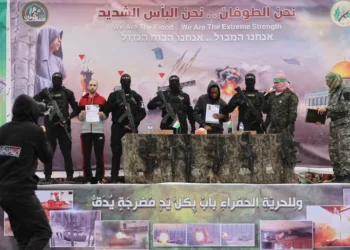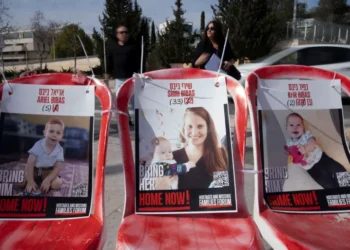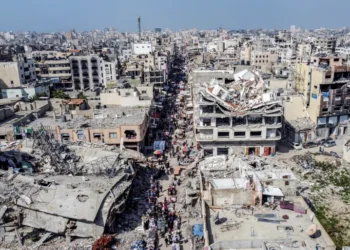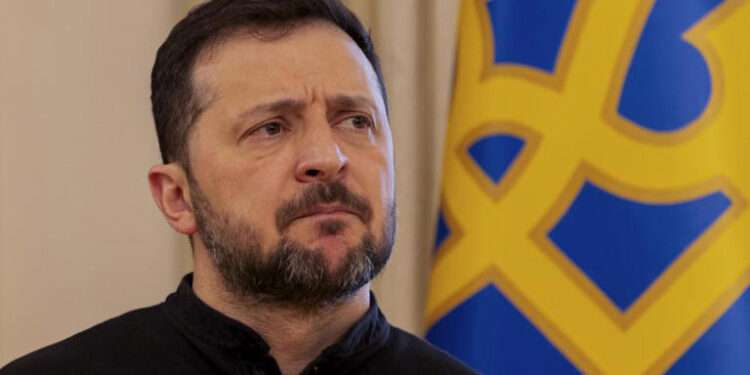An Israeli official has revealed that the military is preparing a response to the recent barrage of missiles launched by Iran, which targeted Israel earlier this week.
According to Israeli media, the military is gearing up for large-scale operations on multiple fronts, with expectations that Western allies, who similarly oppose Iranian influence, will participate in these actions.
In Gaza, the Israeli military is planning intense maneuvers, particularly around the Netzarim Corridor, as the conflict approaches its one-year mark.
The Israeli military issued a new evacuation order for large areas in central Gaza.
A new map was released that designates 11 blocks in areas of Nuseirat and Bureij in the besieged enclave that should be immediately evacuated. Civilians were told to go to a so-called humanitarian zone designated by the army.
Avichay Adraee, the Arabic-language spokesman for the Israeli military, said Hamas and other groups “continue their terror activities” in the designated areas and Israel’s military “will act with great force against these elements.”
Reports indicate that operations in Lebanon will occur “as often as necessary,” with what the army has labeled a limited operation in southern Lebanon set to expand.
Since the onset of the war last year, more than 2,000 individuals have lost their lives due to Israeli strikes in Lebanon.
The humanitarian situation continues to worsen, with over 200,000 Lebanese and Syrian nationals fleeing to Syria to escape the Israeli bombardment, according to the UN High Commissioner for Refugees.
Filippo Grandi noted in a post on X that local authorities, the Syrian Red Crescent, and his agency are providing assistance to those displaced along the border.
Meanwhile, Karim Makdisi, of the American University of Beirut, told a news agency that Hezbollah has an extremely effective fighting and resistance force in southern Lebanon.
“We have seen it in the last couple of days when Israelis were invading through the border and they were repelled several times, and [Hezbollah] inflicted quite a few casualties on Israeli soldiers.”
Karim Makdisi
He said that the same happened in the 2006 war between the two sides.
He asserted that Hezbollah is extremely well prepared no matter what is happening to their political leadership in Beirut, adding, “They will certainly have a very strong presence and fight to the end in south Lebanon.”
Iran’s Oil Minister Not Worried About Israeli Threats
During a visit to Assaluyeh, the energy capital of Iran, Iran’s Oil Minister, Mohsen Paknejad stated that he is not worried about the escalating conflict in the region amid reports that Israel would strike Iran.
However, Mehran Kamrava, a Professor of government at Georgetown University in Doha, opined that there is tremendous concern in Iran over how Israel will respond to Iran’s missile attack.
“A couple of days ago, after Iran’s attack, we saw long lines in Tehran and in other Iranian cities for people lining up at petrol stations trying to fill up their cars. There’s concern that Israel might knock off the electricity grid or Iran’s oil installations.”
Mehran Kamrava
Kamrava said groups in Iran are divided over how to respond if or when Israel retaliates.
“There are groups inside the political establishment that want to expand the war and make sure that American targets in the region are hit and there are those who say, ‘Let’s not alienate our allies or our newly found friends in Riyadh, in Abu Dhabi, and elsewhere.’”
Mehran Kamrava
Kamrava added that a full-blown conflict between Iran and Israel may not be “inevitable.”
He noted that Iran has a so-called doctrine of ‘strategic patience.’ “They say we will respond at a time of our own choosing,” Kamrava said.
He added that Iran has been quite reluctant to fall for the Israeli trap of engaging Israel and then the United States directly.
READ ALSO: UN Urges Unity to Combat Illegal Mining Amid Protests





















